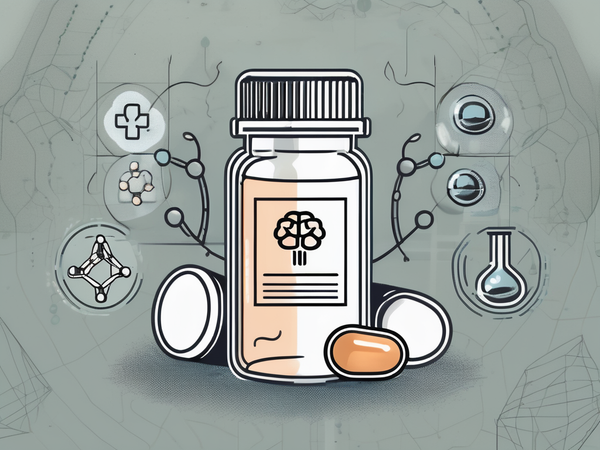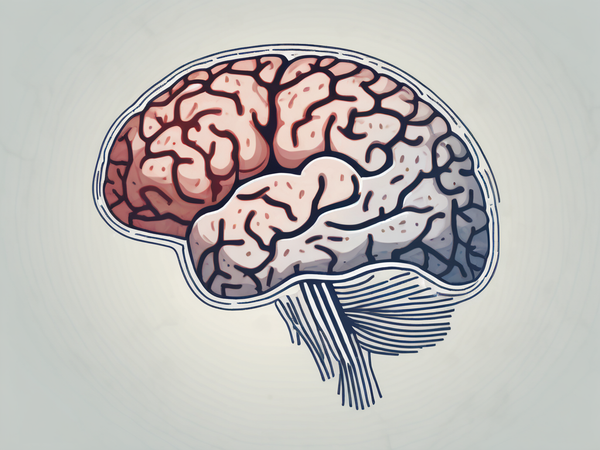Our ability to function in our daily lives is greatly influenced by both our physical and mental health. It plays a huge role in our emotional, psychological, and social well-being. Mental health conditions, such as mood disorders and stress, are prevalent in today’s society and can have a significant impact on an individual. According to the World Health Organization (WHO), one out of every eight individuals suffers from a mental health issue. Millions of people are also thought to suffer from stress-related illnesses every year, with symptoms that can be moderate or severe. Thus, it is essential to prioritize mental health and seek appropriate support and treatment when needed.
How does nutrition impact our mental health?
Nutrition plays a crucial role in our mental health by providing our brains with the necessary nutrients and energy to function optimally. The gut-brain axis, which is the communication pathway between the gut and the brain, is essential for optimal mental health. Furthermore, our brains require a steady supply of nutrients such as vitamins, minerals, and amino acids to produce neurotransmitters — the chemicals that regulate mood, emotions, and cognition. Primarily synthesized by brain cells, these neurotransmitters are also produced by the gut microbiome. The gut microbiome, also known as the gut flora, is composed of trillions of microbes, that further signal our brain to influence mood, cognition, and behavior. Therefore, maintaining a healthy and diverse gut microbiome is crucial for maintaining optimal mental health.
Enter: Magnesium
Magnesium is an important mineral that plays an influential role in regulating our mental well-being. It is involved in numerous processes in the brain, including neurotransmitter synthesis and modulation, stress response regulation, and neuroplasticity. This mineral is essential for approximately 300 cellular functions, including those that promote restful sleep, a sense of vigor, and immune system health. Additionally, magnesium can lessen the symptoms of anxiety, depression, ADHD, and other mental health conditions.
1. Stress and Anxiety Reduction:
Magnesium deficiency has been linked to an increased risk of developing mental health disorders such as anxiety and depression. Cortisol (the stress hormone) is produced and secreted under the control of the hypothalamus-pituitary-adrenal axis. Magnesium acts as a calming agent and helps regulate the release of stress hormones while playing a vital role in promoting relaxation.
2. Mood Stabilization:
Magnesium is involved in the production and regulation of neurotransmitters, such as serotonin, which is often referred to as the "feel-good" hormone. Adequate magnesium levels contribute to a balanced mood and can help alleviate symptoms of depression and mood disorders. This nutrient also plays an important role in the synthesis and regulation of dopamine, and gamma-aminobutyric acid (GABA), which are essential for regulating emotions, and cognitive function.
3. Sleep Promotion:
Magnesium is known to regulate sleep patterns and promote restful sleep. It helps activate the parasympathetic nervous system, which is responsible for relaxation and sleep. Adequate magnesium levels may improve sleep quality and reduce insomnia symptoms.
How to determine if you need more magnesium?
When the body is deficient in magnesium, you may notice many symptoms in your physical health. While not all of them have a direct effect on mental health, recognizing the signs and symptoms in your body can help you better understand your dietary needs. Here’s what you will notice:
i) You have low energy and fatigue.
ii) You feel overwhelmed and overexcited.
iii) You have a low appetite.
iv) You have trouble sleeping at night and daytime sleepiness.
v) You experience muscle spasms.
vi) You are nauseated.
What are some natural sources of magnesium?
While magnesium can be obtained from both natural and supplemental sources, here are some natural sources of magnesium along with their approximate magnesium content per food serving.
- Almonds:
Almonds are an excellent source of magnesium, providing about 80 mg per serving (30 grams). Almonds are also a great source of healthy fats and fiber similar to avocados.
- Spinach:
Spinach is a leafy green vegetable that contains about 78 mg of magnesium per half cup of boiled spinach. It is also a good source of vitamins A, C, and K, as well as iron and folate.
- Cashews:
Cashews are not only delicious but also a good source of magnesium, providing approximately 74 mg per serving (30 grams). They are also rich in monounsaturated fats and other beneficial nutrients.
- Dark Chocolate:
Dark chocolate with a high cocoa content is a surprising source of magnesium, containing around 252.2 mg per 100 grams. Opt for dark chocolate with at least 70% cocoa to enjoy its health benefits.
- Avocado:
Avocado is a nutrient-dense fruit that contains about 44mg of magnesium per 1 cup when cubed. It is also a good source of healthy fats, dietary fiber, and vitamins C, E, and K.
- Quinoa:
Quinoa is a gluten-free grain that provides approximately 60 mg of magnesium in ½ cup. It is also rich in protein, fiber, and various other vitamins and minerals.
- Black Beans:
Black beans are a legume that contains about 60 mg of magnesium in ½ cup when boiled. They are also an excellent source of plant-based protein, dietary fiber, and other nutrients.
- Pumpkin Seeds:
Pumpkin seeds are a nutritious snack that provides around 156 mg of magnesium per serving (30 grams). They are also rich in healthy fats, protein, and other beneficial compounds.
- Bananas:
Bananas are a popular fruit, and a medium size contains about 32 mg of magnesium. They are also a good source of potassium and dietary fiber, making them great for the gut too!
- Salmon:
Salmon is a fatty fish that not only provides omega-3 fatty acids but, when cooked, provides around 26 mg of magnesium in 3 ounces. It is also a great source of high-quality collagen, a form of protein, as we all know.
At times, consuming each of these foods on a daily basis can be difficult. You can also opt for a reliable magnesium supplement that gives you the RDA of magnesium to keep your mental health in check. Look out for supporting ingredients like saffron or suntheanine®, which may add to the efficacy of the magnesium supplement while also contributing their own benefits.
Wrapping Up
Magnesium supplements can be an effective remedy to reduce stress and ensure improved mental health and well-being. While a lot of magnesium-rich foods can be incorporated into our diet, it may be difficult to consume everything every single day for people with busy lifestyles. In such circumstances, taking supplements may prove to be an effective strategy for maintaining good physical and mental health. However, it is not a standalone treatment for mental health conditions. If you're experiencing mental health concerns, it's essential to seek professional help from a healthcare provider or mental health specialist for an accurate diagnosis and appropriate treatment.
—
References:
https://www.who.int/news-room/fact-sheets/detail/mental-disorders
https://www.health.harvard.edu/diseases-and-conditions/the-gut-brain-connection
https://www.ncbi.nlm.nih.gov/pmc/articles/PMC4182554/
https://www.healthline.com/nutrition/magnesium-deficiency-symptoms
https://pubmed.ncbi.nlm.nih.gov/25827510/
https://pubmed.ncbi.nlm.nih.gov/21835188/




























 DOWNLOAD NOW
DOWNLOAD NOW
